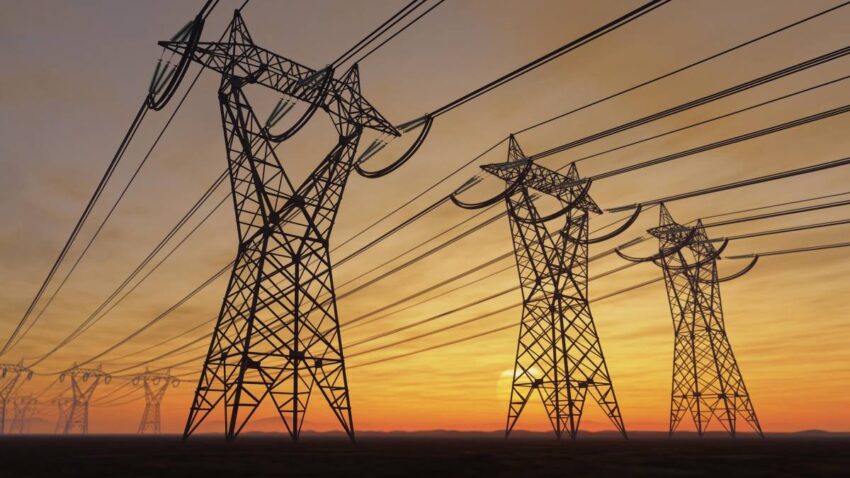
trump s doe proposes cutting billions in The Trump administration’s Department of Energy (DOE) has proposed significant cuts to billions of dollars in grants previously awarded to major automotive manufacturers and numerous startups, raising concerns about the future of innovation in the clean energy sector.
trump s doe proposes cutting billions in
Overview of Proposed Cuts
In a bold move, the DOE under former President Donald Trump has set its sights on canceling billions in grants that were allocated during the Biden administration. This decision has sparked a wave of reactions from various stakeholders, particularly those in the automotive and clean energy sectors. The proposed cuts are primarily aimed at funding initiatives that were designed to accelerate the transition to electric vehicles (EVs) and promote sustainable energy solutions.
Background of the Grants
The grants in question were part of a broader strategy initiated by the Biden administration to combat climate change and foster innovation in clean technologies. These funds were intended to support a range of projects, including the development of advanced battery technologies, electric vehicle infrastructure, and renewable energy sources. Major automotive manufacturers such as General Motors and Ford, along with a host of startups, were among the beneficiaries of these grants, which were seen as essential for maintaining competitiveness in a rapidly evolving market.
Impact on Major Automakers
The proposed cuts pose a significant threat to the plans of major automakers, particularly GM and Ford, which have heavily invested in transitioning their production lines to electric vehicles. Both companies have committed to ambitious targets for EV production, with GM aiming to become fully electric by 2035 and Ford investing $50 billion in EV development through 2026. The loss of federal support could hinder their ability to meet these goals, potentially slowing down the transition to cleaner vehicles.
Consequences for Startups
Startups, which often rely on federal grants to fund their innovative projects, are also facing uncertainty. Many of these companies are at the forefront of developing cutting-edge technologies that could revolutionize the automotive and energy sectors. The loss of funding could stifle innovation and lead to layoffs, as these startups may struggle to secure alternative financing in a challenging economic environment.
Stakeholder Reactions
The announcement of the proposed cuts has elicited a range of reactions from industry leaders, policymakers, and environmental advocates. Many stakeholders have expressed concern over the potential ramifications of such drastic funding reductions.
Industry Leaders Speak Out
Executives from major automakers have voiced their opposition to the proposed cuts, emphasizing the importance of federal support in achieving their sustainability goals. “The transition to electric vehicles is not just a business imperative; it’s a societal necessity,” said a spokesperson from Ford. “Cutting funding at this critical juncture could set back years of progress.”
Environmental Advocates Respond
Environmental organizations have also condemned the proposed cuts, arguing that they undermine efforts to combat climate change. “The Biden administration recognized the urgent need for action, and these grants were a step in the right direction,” stated a representative from the Sierra Club. “To reverse course now would be a grave mistake.”
Political Implications
The proposed cuts are not only a matter of economic concern but also a political one. As the Trump administration seeks to reshape energy policy, the implications of these cuts could reverberate throughout the political landscape.
Potential Backlash from Voters
Voter sentiment regarding climate change and clean energy initiatives has been shifting, with many Americans expressing support for policies that promote sustainability. The proposed cuts could alienate a significant portion of the electorate, particularly younger voters who prioritize environmental issues. This backlash could have implications for future elections, as candidates may be forced to address the concerns of constituents who are increasingly aware of climate-related challenges.
Congressional Response
Members of Congress have also begun to weigh in on the proposed cuts, with some expressing their intent to challenge the DOE’s decision. “We cannot afford to turn back the clock on clean energy innovation,” said a Democratic senator. “We will do everything in our power to protect these vital investments.”
Broader Economic Context
The proposed cuts come at a time when the U.S. economy is still grappling with the effects of the COVID-19 pandemic. The automotive industry, in particular, has faced numerous challenges, including supply chain disruptions and rising material costs. The loss of federal grants could exacerbate these issues, leading to further instability in the market.
Impact on Job Creation
Job creation in the clean energy sector has been a focal point for both the Biden and Trump administrations. The proposed cuts could hinder job growth in an industry that has the potential to create millions of jobs in the coming years. According to a report from the International Renewable Energy Agency, the transition to renewable energy could generate up to 24 million jobs globally by 2030. The U.S. must remain competitive in this burgeoning market, and cutting funding could jeopardize its position.
Global Competitiveness
As countries around the world ramp up their investments in clean energy technologies, the U.S. risks falling behind if it withdraws support for innovation. Nations such as China and Germany have made substantial commitments to green technologies, and the U.S. must keep pace to maintain its leadership in the global economy. The proposed cuts could hinder the development of technologies that are critical for the future of energy and transportation.
Conclusion
The Trump administration’s proposal to cut billions in grants for GM, Ford, and numerous startups represents a significant shift in energy policy that could have far-reaching implications. As stakeholders from various sectors react to the news, the potential consequences of these cuts are becoming increasingly clear. The automotive industry, clean energy startups, and environmental advocates are all bracing for what could be a tumultuous period ahead. The future of innovation in the U.S. hinges on the decisions made in the coming months, and the stakes have never been higher.
Source: Original report
Was this helpful?
Last Modified: October 8, 2025 at 10:38 am
1 views















